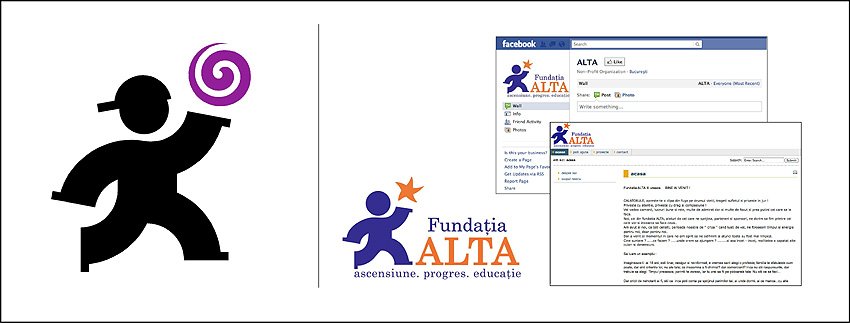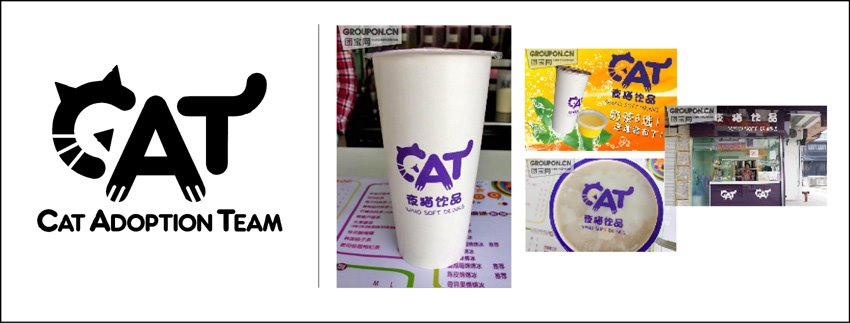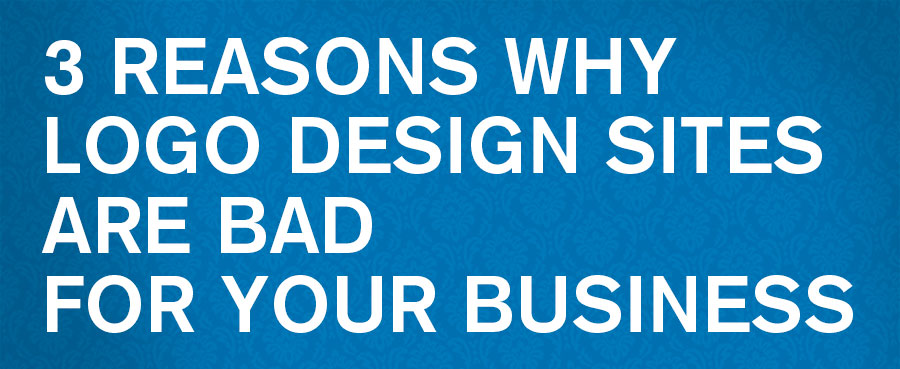What is a logo design contest site?
A logo design contest site is basically an online marketplace where people or businesses looking to have a logo designed, post the project/contest to the site along with some requirements and prize dollar amount—usually miniscule. The members, usually consisting of thousands of designers, proceed to design potentially hundreds of options for the contest holder to choose from, typically by a specified due date. The contest holder then either chooses a logo and “rewards” the winner with the prize, or decides there is no winner and the project is reposted for more designs until he gets one that he likes. That’s it in a nutshell.
Sounds like a great deal…hundreds of design options to choose from and only a few bucks, right? Not so fast!
You wouldn’t hire 3 people to build you a house and expect to only pay for the house you liked, right? And then proceed to pay a tiny fraction of what the house was worth. I realize that sounds ridiculous, but as a professional designer, that is how the whole concept of contest sites sound to me. You are employing hundreds of man hours in total and only one person gets paid a usually small prize. The others are left with no compensation.
There are negative ramifications this has on my profession/trade as well, which is a heated discussion in my industry about devaluing our work. For now, though, I will only address why it is bad for the end user because that is who I serve.
Here are my top 3 reasons why using logo design contest sites are bad for your business. Each one alone is reason enough not to use them, in my opinion. The goal of this article is to shed some light on the pitfalls of using such a site to unsuspecting users and designers.
Why it’s bad for your business.
1. Quantity over quality.
Because there are so many people competing for the prize, it is in their best interest to crank out as many options as possible to increase their chances of winning. This tactic also promotes shoddy craftsmanship because they need to get as many as they can in front of the contest holder to better their odds. Because they become concerned with quantity, this often times leads to several designs being stolen and presented as their own. There are a ton of documented cases where logo theft has been rampant, and truth be told, the contest holder really has no idea if the logo is stolen or not.
This can be a liability for the company using said stolen design. (more on this in #3.) They invest money in branding their business with print, web and other collateral with the potential that down the line it is discovered that your logo identity was a rip off of someone else’s. If that’s the case, you have wasted time, money and potential future business. It can be a devastating blow to a business, especially if you are bootstrapped to begin with.
2. Lack of strategy.
It is hard to understand your business in a way where one can create something that will represent your company in a meaningful way with just a short description of what your business is. There usually isn’t much correspondence between the client and “designers!” No research, no Q&A and very little interaction between them. I’m sure there are instances where it HAS worked out for both parties, but in the end, you really don’t know the source of the design. I certainly wouldn’t bet my business reputation on it.
3. Potentially Huge Business Liability.
This alone in my opinion should be enough to keep people away from employing such sites because, in the end, you just don’t know. And as the the GI Joe PSA’s used to say, “knowing is half the battle.”
From a Clients perspective
As mentioned above in #1, if you purchased a logo from one of these sites, and proceeded with creating your company materials only to find out that the logo you are using was stolen, then you are legally obligated to cease using that design. This can be a very costly mistake.
You may be thinking, “well how often does that really happen?”, and I cannot answer that. My response to that question would be, “why would you even want to take that risk with your business? Your livelihood?” You could face lawsuits, or having to change all your materials, which can break some smaller businesses. It’s just not worth the risk. Invest the time, energy, and money it will take to create an identity that is yours, and yours alone. It will literally pay for itself down the road.
From a Desinger’s Perspective
My colleague and well known Identity designer Jeff Fisher of Jeff Fisher LogoMotives has encountered a slew of instances where his logo designs were stolen and re-purposed as submissions for logos through some of these design contest sites.
I asked Jeff to comment on his experiences over the years and here are a couple excerpts of what he had to say regarding logo design contest sites along with a some examples of theft.

Jeff says:
“My original images are often found as logo design ‘contest’ entries on websites offering ‘clients’ a wide variety of logo submissions from which to select the discount identity to represent their business. Just last week, in a period of about an hour, I found four ‘designers’ submitting rip-offs of my own design on two different ‘contest’ sites. I suppose, in all of these recently discovered situations, it’s a good thing the design copies were not the ‘winning’ designs for a probably unsuspecting client.”
Jeff continues:
“Crowdsourcing logo design sites have often revealed examples of my original designs, or slight alterations, being offered as possible solutions to very limited briefs for logo design projects. Having reviewed a number of such sites in recent years, I have also come across logos created by ‘designers,’ often from very familiar ‘clip art’ images, being recycled again and again for different crowdsourcing efforts.”
Jeff was able to track down some of these offenders through help from a vigilant global design community and by using the Google reverse image search where you upload an image, and Google searches for matches or similar variations. This has proven an invaluable tool to identify theft, but the reality is that it takes a lot of time and effort to play “logo police” as Jeff puts it, and will cost a lot of time and money if he were to pursue legal action.

Jeff’s work has received a great deal of world-wide exposure, and if people are willing to take HIS well-known work to pass it off as their own, how much other, lesser-known work is being ripped off? We will never really know. And do you really want to put YOUR business and YOUR reputation on the line to save some money? In my opinion it’s not worth it.
Jeff has had so many instances where his designs were being stolen, he started a Facebook gallery on all the examples of theft. The quantity is sobering! Check out the gallery here.
Conclusion
Some people will say that the people who participate in these sites, especially the designers, know what they are getting into. They know that the chance of winning a contest is slim and that they aren’t forcing them to do the work. And that is true.
This is why theft occurs because it is in their best interest to provide as many designs in the shortest amount of time. If one values their work and talents, why would they subject themselves to the high probability of working for free.
But, I don’t know these people nor do I know what their life circumstances are. I’m not here to judge. My goal was to educate unsuspecting users on this topic and hope that I might be able to sway some people looking to use such a service by highlighting the negative aspects of going this route.
If you are working on a tight budget, there are alternatives. You can look to your local AIGA chapter to find a designer to work within your budget, you can get referrals from colleagues, you can look to local colleges and approach their design departments for student work. Create a relationship with a designer, and barter services! I did this a lot when I was first starting out and still do it on occasion.
Whatever route you choose, just remember that the “you get what you pay for” saying usually holds true.
Would you risk using one of these sites for your business?
Here are a few resources/articles for more on contest sites and speculative work and their impact on the industry.
• AIGA – The professional organization for design
http://www.aiga.org/position-spec-work/
• NoSpec
http://www.no-spec.com/
• HOW Deisgn Mag
http://www.howdesign.com/how-magazine/how-may-2012/crowdsourcing/

